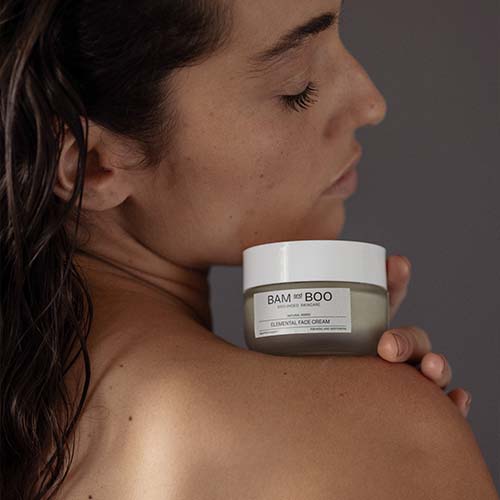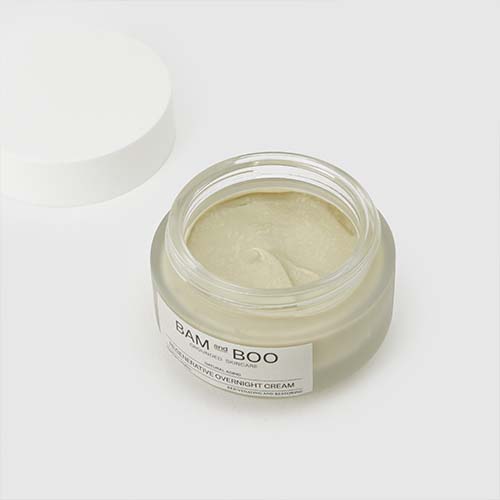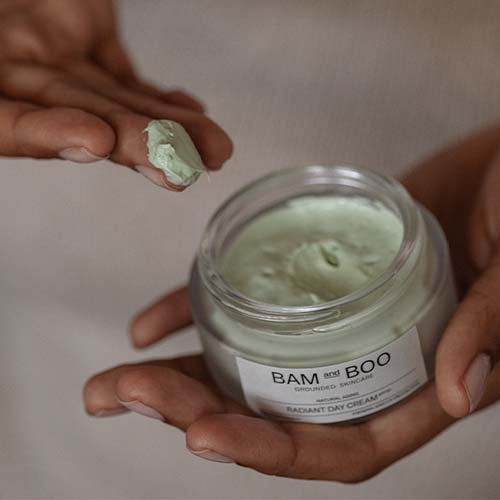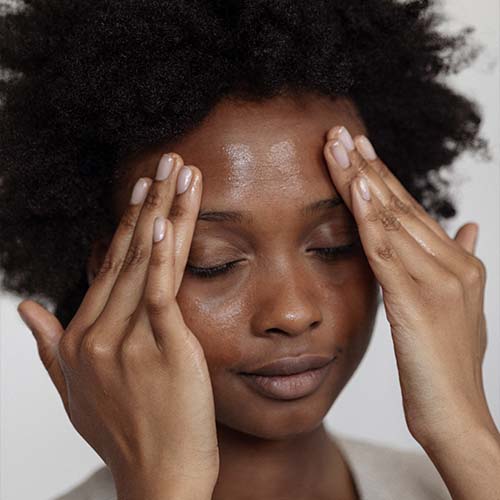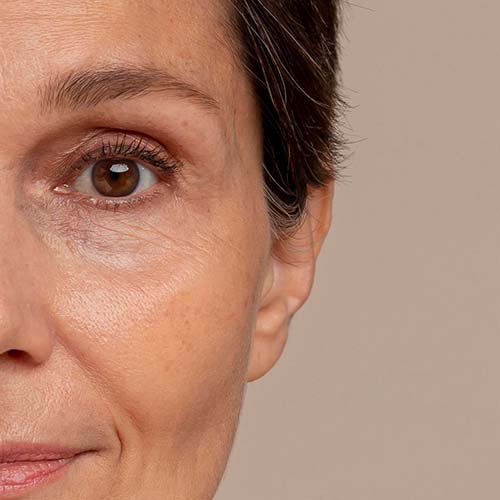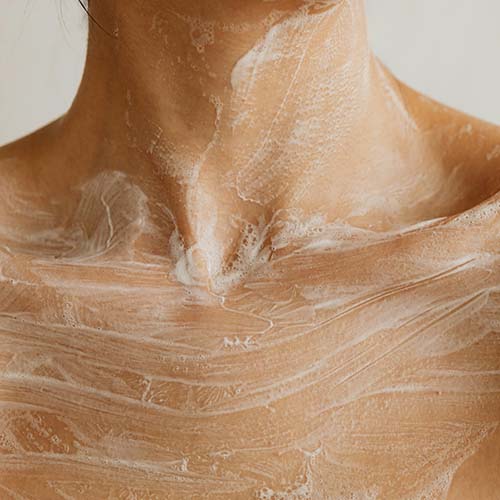When you think of algae, the first image that might come to mind is the green stuff floating in a pond. However, algae is much more than just a plant found in water bodies. Algae, both macro and micro, are powerhouses of nutrients and have been used for centuries for their medicinal and health benefits. In recent years, the beauty industry has harnessed the power of algae to create skincare products that offer a multitude of benefits. In this article, we will explore the wonders of algae, its health benefits, and how it can transform your skincare routine.
Understanding Algae: Macro vs. Micro
Algae are simple, photosynthetic organisms found in water and on land. They are classified into two main types: macroalgae and microalgae.
Macroalgae: Macroalgae, commonly known as seaweed, are large, visible to the naked eye, and found in marine environments. They include varieties like kelp, sea lettuce, and red algae. Macroalgae are rich in minerals, vitamins, and antioxidants, making them an excellent ingredient in skincare.
Microalgae: Microalgae are microscopic, single-celled organisms found in both fresh and saltwater. Examples include spirulina and chlorella. Despite their small size, microalgae are packed with nutrients and have high concentrations of proteins, vitamins, and essential fatty acids.

Types of Algae in Portugal and the Azores
Portugal, including its archipelago, the Azores, boasts a rich variety of both macro and microalgae due to its extensive coastline and favorable marine conditions.
Algae in Mainland Portugal
1. Kelp (Laminaria spp.): Found along the rocky coasts, kelp is rich in iodine and other minerals.
2. Sea Lettuce (Ulva lactuca): Common in intertidal zones, this bright green algae is packed with vitamins and antioxidants.
3. Dulse (Palmaria palmata): A red algae found in the colder waters, dulse is known for its high protein and mineral content.
4. Irish Moss (Chondrus crispus): Found along the Atlantic coast, Irish moss is valued for its carrageenan content, which is used in skincare for its hydrating properties.
5. Fucus (Fucus vesiculosus): Often found along the rocky shores, Fucus is known for its high content of iodine, fucoidan, and antioxidants, making it a potent ingredient in anti-aging and detoxifying skincare products.
Algae in the Azores
1. Spirulina (Arthrospira platensis): Though typically harvested from freshwater, spirulina farms are prevalent in the Azores, leveraging the pure and mineral-rich waters.
2. Chlorella (Chlorella vulgaris): Another microalgae cultivated in the Azores, chlorella is known for its detoxifying and nutrient-rich profile.
3. Gelidium (Gelidium spp.): Found in the rocky shores of the Azores, this red algae is a source of agar, used for its soothing and hydrating properties in skincare.
4. Sargassum (Sargassum spp.): A brown algae that washes up on the shores, Sargassum is known for its anti-inflammatory and antioxidant benefits.
5. Coralline Algae (Corallina officinalis): This pinkish algae, common in the Azores, helps to strengthen the skin’s barrier due to its calcium content.

The Power of Algae for Human Health
Algae have been used in traditional medicine for their health benefits, which include:
1. Nutrient-Rich Superfood: Algae are packed with essential nutrients like vitamins A, C, E, and B-complex, minerals like iodine, calcium, and iron, and proteins.
2. Detoxification: Certain algae, like chlorella, are known for their detoxifying properties, helping to remove heavy metals and toxins from the body.
3. Boosting Immunity: Algae contain beta-glucans and antioxidants, which can enhance immune function and protect against diseases.
4. Anti-Inflammatory Properties: The omega-3 fatty acids and chlorophyll in algae help reduce inflammation in the body.
5. Enhanced Energy Levels: Algae, particularly spirulina, are excellent sources of energy-boosting nutrients, improving overall vitality.
With such impressive health benefits, it’s no surprise that algae have found their way into the world of skincare. Here are ten advantages of using algae in your skincare routine:

Advantages of Algae in Skincare
1. Deep Hydration: Algae are incredibly effective at retaining moisture, making them an excellent ingredient for hydrating the skin. They help to replenish the skin’s natural moisture barrier, keeping it soft and supple.
2. Rich in Antioxidants: Algae are packed with antioxidants that protect the skin from free radicals and environmental damage. These antioxidants help to prevent premature aging and maintain a youthful complexion.
3. Anti-Inflammatory Properties: The anti-inflammatory compounds in algae can help soothe irritated and sensitive skin. They reduce redness, swelling, and inflammation, making them ideal for conditions like acne and rosacea.
4. Detoxification: Algae have natural detoxifying properties that help to cleanse the skin of impurities and toxins. This detoxification process leaves the skin clearer and more radiant.
5. Anti-Aging Benefits: Algae are rich in vitamins and minerals that promote collagen production, improve skin elasticity, and reduce the appearance of fine lines and wrinkles. This helps to keep the skin firm and youthful.
6. Brightening Effects: Certain types of algae, such as red algae, contain compounds that can help brighten the skin and even out skin tone. They reduce hyperpigmentation and dark spots, giving the skin a more luminous appearance.
7. Healing Properties: The nutrients in algae aid in the skin’s natural healing process. They promote cell regeneration and repair, helping to heal wounds, scars, and sun damage more quickly.
8. Oil Regulation: Algae can help balance the skin’s oil production, making them beneficial for both oily and dry skin types. They regulate sebum production, preventing clogged pores and breakouts.
9. Protection Against UV Damage: Some algae species contain compounds that provide natural protection against UV rays. These compounds help to shield the skin from sun damage and reduce the risk of skin cancer.
10. Enhanced Skin Barrier: The proteins and lipids in algae strengthen the skin’s natural barrier, protecting it from environmental pollutants and preventing moisture loss. This results in healthier, more resilient skin.

Frequently Asked Questions about Algae in Skincare
1. Are algae-based skincare products suitable for all skin types?
Yes, algae-based skincare products are generally suitable for all skin types. The hydrating, anti-inflammatory, and detoxifying properties of algae can benefit dry, oily, sensitive, and combination skin. However, as with any skincare product, it is advisable to conduct a patch test before full application to ensure there is no allergic reaction.
2. How do algae-based products compare to traditional skincare ingredients
Algae-based products often provide more comprehensive benefits compared to traditional ingredients due to their rich nutrient profile. They offer deep hydration, antioxidants, anti-inflammatory properties, and UV protection all in one. Traditional ingredients might only target one or two skin concerns, whereas algae can address multiple issues simultaneously.
3. Can algae help with acne-prone skin?
Yes, algae can be beneficial for acne-prone skin. The anti-inflammatory properties help reduce redness and swelling, while the detoxifying effects cleanse the skin of impurities. Additionally, algae regulate oil production, which can prevent clogged pores and breakouts.
4. How long does it take to see results from algae-based skincare products
The time frame for visible results can vary depending on the individual and the specific skin concern being addressed. However, many people report noticeable improvements in skin hydration, texture, and overall radiance within a few weeks of consistent use. For anti-aging benefits, it might take a bit longer, typically around 4-6 weeks of regular application.
5. Are there any side effects of using algae in skincare?
Algae-based skincare products are generally considered safe and well-tolerated. However, some individuals might experience mild irritation or allergic reactions, especially those with very sensitive skin or allergies to marine products. It is always recommended to perform a patch test before using any new skincare product extensively.
6. Can algae-based products be used with other skincare ingredients?
Yes, algae-based products can typically be used alongside other skincare ingredients. Algae’s natural properties complement many other ingredients, such as hyaluronic acid, vitamin C, and retinoids, enhancing their effects. However, it’s always a good idea to introduce new products gradually to observe how your skin responds.
7. How sustainable is the harvesting of algae for skincare products?
Algae harvesting can be highly sustainable when done responsibly. Many skincare brands source algae from controlled environments or sustainable farms to ensure minimal impact on marine ecosystems. Algae grow quickly and do not require freshwater or arable land, making them an environmentally friendly option for skincare formulations.
8. Do algae-based skincare products have a strong scent?
Most algae-based skincare products do not have a strong, unpleasant scent. While some raw algae might have a distinct marine smell, the scent is usually masked or neutralized during the formulation process, leaving a mild or refreshing fragrance in the final product.
9. Are there specific algae types better suited for anti-aging products?
Yes, certain algae types like Fucus (Fucus vesiculosus) and red algae (Palmaria palmata) are particularly effective for anti-aging due to their high content of antioxidants, vitamins, and minerals that promote collagen production and improve skin elasticity. These algae help reduce the appearance of fine lines and wrinkles, making them ideal for mature skin.
10. How should algae-based skincare products be stored?
Algae-based skincare products should be stored in a cool, dry place, away from direct sunlight. This helps maintain the integrity of the active ingredients. Some products may also benefit from refrigeration to prolong their shelf life, especially if they contain live cultures or are free from preservatives.
Do you already know our Natural Aging skincare range with Algae? LEARN MORE:
References and Further Reading
If you’re interested in learning more about the role of algae in skincare and beyond, here are some resources you might find helpful:
- Vogue Scandinavia - Skincare Science: Why algae is a powerful superfood whether applied topically or ingested
- Harpers Bazaar - Why it's time to incorporate algae in your skincare
- Dr Draxe Top 10 Algae Benefits that May Surprise You
- Health - Types of Algae and Their Benefits
- Science Direct - Algae as an attractive source for cosmetics to counter environmental stress
- Science Direct - Exploring the potential of using algae in cosmetics
- Research Gate - Applications of algae in cosmetics: an overview
- MARE - Marine and Environmental Sciences Centre - Univ. Coimbra - Seaweeds as Source of Bioactive Substances and Skin Care Therapy—Cosmeceuticals, Algotheraphy, and Thalassotherapy, by Leonel Pereira


